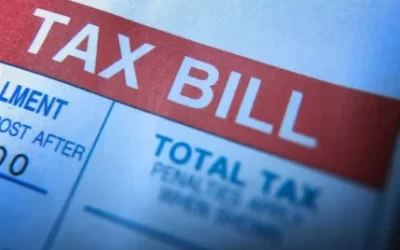Estate Liquidation Auctions
For Heirs and Executors
Selling a Deceased Loved One’s Home
When selling a deceased loved one’s property, the process can be quite complex. Executors and heirs encounter various emotional and practical challenges. One of the initial steps in selling a deceased loved one’s home is to verify ownership and ensure a clear title.
This may involve locating and delivering essential legal documents, such as the will, letters of administration, and any relevant court orders. If the property is jointly owned, it becomes crucial to determine the rights of the surviving owner(s) and whether their consent is necessary for the sale.
Shane Tyler is here to guide you through this intricate process. He provides step-by-step instructions, covering everything from understanding legal obligations to offering helpful tips for a smooth and successful sale. Additionally, estate auctions can be an effective way to sell property swiftly. Shane can assist you in creating an aggressive marketing campaign that enhances the property’s value and generates interest among potential buyers.

Shane Tyler can confidently help you navigate the complexities of selling a deceased loved one’s home, ensuring a smooth and successful transaction that honors their memory while facilitating a new chapter for all parties involved.
Know Whether or Not the Courts Need to Get Involved
The legal transfer of property from a deceased individual to a living relative or beneficiary can sometimes require court intervention, this process is called probate. In the event that your loved one left behind a will, you may not have to.
Probate is a court proceeding filed in the county in Florida where the deceased person last resided. There are two types of probate for Florida residents: formal and summary. Which type of probate depends on the size and type of assets owned by the decedent at the time of his or her death.
Determine Whether It’s Possible for You to Sell the Estate
If your loved one has named both an executor and beneficiaries of the property, then you will need to get the permission of the executor to sell the home. If the executor and beneficiaries disagree on what to do with the property then you may need to go through the court system.
Here are some of the most important documents to have when selling your deceased loved one’s estate:
-
-
-
-
Copy of the homeowners insurance policy
-
Bill receipts
-
Your loved one’s will
-
Bank account documentation
-
Investment account information
-
-
-
You’ll Need to Settle Debts
If you intend to sell your deceased loved one’s home, then you will need to keep up with the home’s expenses.
If your relative’s estate has an executor named, it will be their responsibility to cover the costs of maintaining the estate. Maintenance fees include mortgage payments and utilities.
You’ll Need to Pay Estate Taxes on the Transfer of Property
Federal law dictates that you’ll have to pay estate taxes on the transfer of the ownership of the property from your loved one to you. Additionally, you will need to pay taxes on the sale of the home once you have successfully sold it.
Paying all of these taxes can add up, it’s a good idea to discuss the costs related to the sale of your home with an experienced real estate agent. Shane Tyler can help you to auction the estate and get it sold while saving you money
Finding the Right Real Estate Agent
Shane Tyler understands that the process of selling the estate that belonged to a deceased loved one is difficult. At American Dream Realty, we want to make it as easy as possible.
Rather than selling the house for the first offer you receive, it may benefit the estate and the beneficiaries to retain a professional real estate agent who has experience selling and auctioning inherited property and knowledge of the local real estate market.
GET IN TOUCH
4445 US Hwy 17 W
Haines City, FL 33844
Florida Probate
The Court Process: Understanding Probate in FloridaProbate serves as a court-supervised process for handling the estate of a deceased individual (referred to as the decedent). Its primary objectives include identifying, collecting, and distributing the decedent’s...
Understanding Florida’s Homestead Exemption Laws
Definition: Florida homestead property is a natural person’s primary residence in the state. It can be up to one-half acre in a municipality or 160 acres in an unincorporated county. All contiguous property is included, even if it has separate legal descriptions and...
Escrowing for Property Taxes with Mortgage Financing
What is EscrowEscrowing for property taxes with mortgage financing is a crucial aspect of managing real estate transactions. When you escrow for property taxes, it means that a portion of your mortgage payment is set aside in an escrow account to cover your annual...
Florida Property Taxes – a quick introduction for new owners
Understanding Property Taxes in Florida Variable Discounts for Early Payment If you pay your property taxes anytime between now and the end of March, you’ll receive the following discounts: November: 4% discount December: 3% discount January: 2% discount February: 1%...
How Fast Can a Home Sell at Auction?
A lot of the issues included with putting a home on the market are eliminated, and companies that specialize in home auctions can do most of the work. There are also a few benefits to selling a home in this manner that aren’t Those who do not want to sell a home...
Estate Sale vs Auction: What’s The Difference?
When a loved one passes away or decides to sell the family home, it can create a stressful situation for those responsible for the house and its contents. Many people assume that the best way to sell the contents of a home is to hold an estate sale, also known as a...
(863)421-2105






